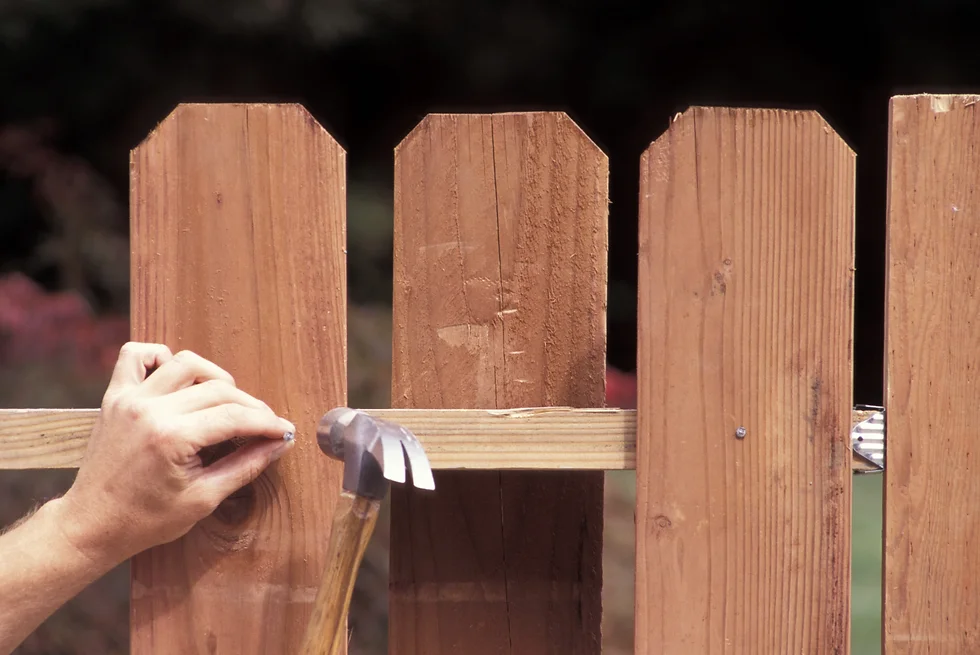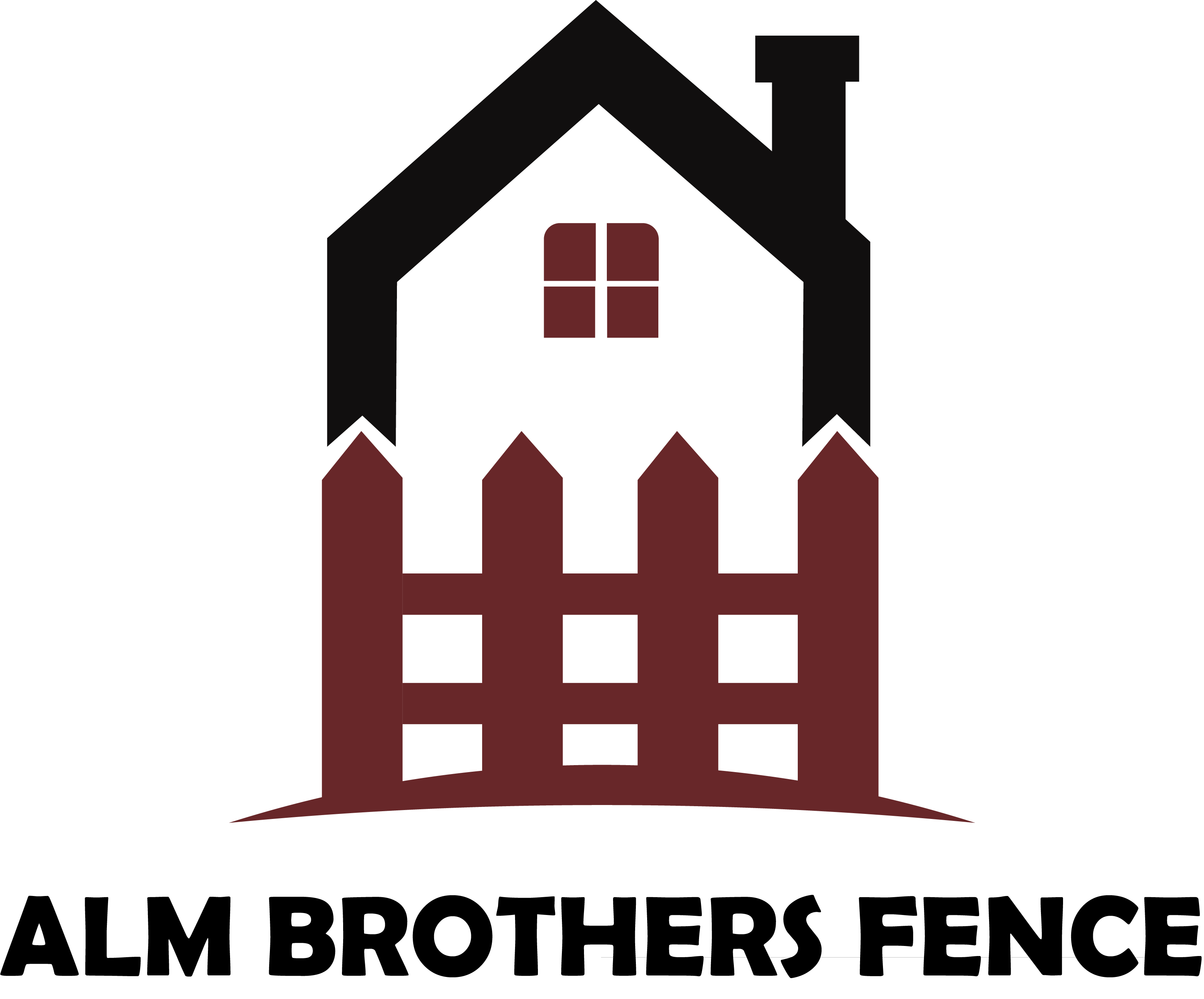
5 Signs Your Fence Needs Repair
A fence is an important part of your home. It defines your property, adds security, provides privacy, and improves the look of your yard. However, like any outdoor structure, fences can wear out over time. Knowing the signs that your fence needs repair is crucial for fixing issues early and avoiding bigger problems. This guide will help you spot the key indicators that your fence might need attention, so you can perform timely fence repair and maintain the integrity of your property.
Visual Inspection: What to Look For
Warping or Buckling
Wooden fences can warp or buckle due to changes in temperature and humidity. Look for sections of the fence that seem twisted or bent. This can happen when wood swells or shrinks from too much moisture or extreme weather.
Loose or Missing Boards
Check for any loose, missing, or damaged boards. Wooden fences might have planks that are coming off or have fallen out. For vinyl or composite fences, look for cracks or parts that may have come loose. Missing boards can reduce privacy and security.
Rust or Corrosion
For metal fences, such as chain-link or wrought iron, rust or corrosion is a major sign of trouble. Rust can spread quickly and weaken the metal. Look for reddish-brown stains or flaking on metal fences. Regular inspection and treatment are key to preventing further damage.
Cracks and Splits
Inspect wooden fences for cracks or splits, especially in the posts and rails. These can be signs of aging or damage from weather. Cracks can weaken the fence, making it more likely to break or collapse.
Structural Issues: Signs of Serious Problems
Tilted or Leaning Posts
Fence posts are essential for stability. If some posts are leaning or tilted, this might mean they are not properly secured or that the ground around them has eroded. Leaning posts can lead to bigger structural problems if not fixed.
Uneven Fence Line
A properly installed fence should be straight and even. If parts of your fence are uneven or sagging, it could be due to shifting ground, deteriorating posts, or general wear and tear. An uneven fence affects both its look and its function.
Gate Malfunctions
Gates are often used a lot, so they can wear out. If your gate is sticking, sagging, or doesn’t close properly, it might be due to loose hinges, misaligned posts, or a warped gate. These issues can affect security and ease of use.
Functional Problems: Impact on Use and Security
Increased Noise
A fence that’s falling apart may make unusual noises, like creaking or banging. This can be a sign of loose boards, rusted hardware, or weakened parts. Unusual noises can indicate that the fence is not as stable as it should be.
Difficulty Opening or Closing Gates
If you have trouble opening or closing the gate, it could be due to structural issues or misalignment. Problems with the gate can impact security and make it harder to use.
Reduced Privacy
If your fence is supposed to provide privacy, any gaps, loose boards, or missing sections can reduce its effectiveness. Check for areas where the fence isn’t covering as it should. This is especially important if privacy is a key reason for having the fence.
Environmental Impact: Effects of Weather and Wear
Water Damage
Wooden fences are particularly vulnerable to water damage. Look for signs of rot, mold, or mildew. Water damage can weaken the wood, making it more likely to break or warp. Regular sealing and treating of wooden fences can help prevent water damage.
Termite Infestation
Termites and other pests can cause serious damage to wooden fences. Signs of infestation include small holes, tunnels in the wood, and a general weakening of the fence. If you suspect termite damage, act quickly to prevent more destruction.
Sun Damage
Extended exposure to the sun can cause fading, warping, and cracking in various types of fences. Vinyl fences, in particular, can become brittle and discolored over time. Look for signs of sun damage and consider using UV protectant products or replacing damaged sections.
Maintenance and Repair Tips
Regular Inspections
Regular inspections are key to catching issues before they become major problems. Check your fence at least twice a year and after major weather events. This will help you find and fix minor issues early.
Prompt Repairs
Fixing problems quickly can prevent them from getting worse. For example, if you see a loose board or a small crack, repairing it right away can stop more damage. Keeping up with minor repairs will help your fence last longer.
Professional Help
For serious issues, like major structural damage or widespread rust, it might be best to get help from a professional. Fence contractors have the expertise to handle complex repairs and provide long-term solutions.
Preventative Measures
Taking preventative steps can reduce the need for repairs. For wooden fences, this includes regular staining or sealing to protect against moisture and UV damage. For metal fences, applying a rust-resistant coating can help prevent corrosion.
Conclusion
Recognizing the signs that your fence needs repair is essential for keeping it in good condition. From visual checks to spotting structural and functional problems, staying alert to these indicators will help you catch issues early and prevent more extensive damage. Regular maintenance and timely repairs will not only extend the life of your fence but also ensure it continues to provide security, privacy, and beauty to your property.
